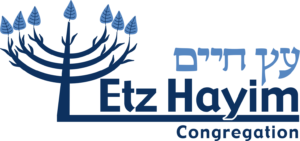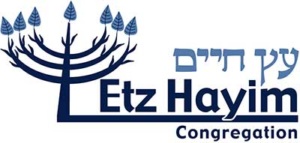If I had to explain what Judaism is all about in one word, without a doubt I would say: Kedusha (Holiness).
Last week we read parashat Kedoshim and this week we read parashat Emor. This section is also known as the “Holiness Code”, a sequence of laws that cover almost every aspect of human life: doing business, Shabbat, moral behavior, Kashrut, family relationships, and non-Jewish Gods. So the question that Jews have been trying to answer throughout time is, of course, what does holiness actually mean?
A more literal reading of Kedusha that I think is very helpful to understand this complex concept is “to set aside”. The first mention of this concept in the Torah is during the creation story, and its role there is to set one day (Shabbat) aside from the other days of the week “vaikadesh oto” (God sanctified it – Shabbat). Shabbat is divine for being different than the other days of the week. The opposite of kedusha is chol (ordinary, commonness), which helps us understand this concept of setting aside, making it different, or extraordinary, if you will. The question that remains is: different how? This reading might not be sufficient enough to explain it completely, but Shabbat became the quintessential way of marking time in Jewish life as holy; so, if you want to understand kedusha, you must experience Shabbat.
Last week’s parasha teaches “kedoshim tihiu – Be holy, for I, Adonai your God, am holy”. Our role in relating to the divine is to pursue the divine holiness in imitating God, being Godlike. Later on, the Torah teaches also “Make yourselves holy and be holy, for I am Adonai your God”. This second wording puts even more focus on human action, and not God’s actions, like we saw regarding Shabbat. We need to make ourselves holy, different, extraordinary and stay in that state. Then, the next verse says: “You shall faithfully observe my laws: I, Adonai, am the one who makes you holy.” Here is the key: God gave us Torah, by living a life of Torah, God makes us holy. We need God to be holy, but God cannot make us holy without our partnership and action.
The core message of this teaching for me is that we are all created in the image of God, and therefore have the potential to be Godlike. We need to strive to learn God’s ways of holiness through Torah study and acts of lovingkindness. The Talmud teaches (Sotah 14a):
“Rabbi Ḥama, son of Rabbi Ḥanina, says: What is the meaning of the verse: “After Adonai your God shall you walk” (Deut. 13:5)? But is it actually possible for a person to follow the Divine Presence? But hasn’t it already been stated: “For Adonai your God is a devouring fire” (Deut. 4:24), and one cannot approach fire.
He explains: Rather, the meaning is that one should follow the attributes of the Holy Blessing One. And provides several examples: Just as God clothes the naked, as it is written: “And God made for Adam and for his wife garments of skin, and clothed them” (Gen. 3:21), so too, should you clothe the naked. Just as the Holy Blessing One visits the sick, as it is written with regard to God’s appearing to Abraham following his circumcision: “And Adonai appeared unto him by the terebinths of Mamre” (Gen. 18:1), so too, should you visit the sick. Just as the Holy Blessing One consoles mourners, as it is written: “And it came to pass after the death of Abraham, that God blessed Isaac his son” (Gen. 25:11), so too, should you console mourners. Just as the Holy Blessing One, buried the dead, as it is written: “And he was buried in the valley in the land of Moab” (Deut. 34:6), so too, should you bury the dead.”
So, what can we learn from experiencing shabbat and walking God’s ways?
Am Kadosh (Holy People) – God commands us, right before uttering the 10 commandments, to be an Am Kadosh, a Holy People. I can only understand the concept of a chosen people through this prisma of kedusha. Being a people that has certain set of values, laws, and practices that are clearly different and counter cultural to society is what makes us an Am Kadosh. Our narratives offer worldviews that could only be fulfilled if the entire world would abide by God’s Torah, once they all realize is truth. I’m constantly challenged by this perspective, I don’t hold my truth be higher than other’s truth, but I hold it as something dear to me, something that gives meaning to my life. Being part of the Jewish People has taught me how to model behavior, the constant work we put on to be a holy nation, can only be manifested through our actions and our relationship with others. Our Torah also teaches: “Love your fellow as yourself”, as the sage Hillel taught a version of it in the Mishna, this is all the Torah, the rest is commentary. Now go and study.
Kedoshim tihiu, it all starts with you.

